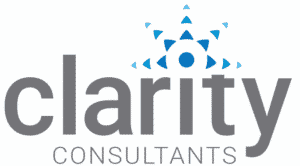[feat-img-left]
With more than 161 million lessons delivered and six million visitors per day, Khan Academy has revolutionized American education. We wondered, what’s the secret to its success, and can that success be replicated in adult and workplace learning?
Khan Academy grew out of a simple attempt to help. Shortly after graduating from college, Salman Khan, who holds a total of four degrees from MIT and Harvard, began tutoring his 12-year-old cousin in math. He made simple instructional videos, each about 10 minutes long, that focused on a single concept.
Once someone suggested that he post them on YouTube, others began watching—and then the phenomenon exploded. Khan Academy now offers more than three thousand courses and has been adopted wholesale by teachers, schools, and school systems. Its key elements can be used to improve any educational enterprise:
Launch and learn.
Sal Khan describes the success of Khan Academy as an “inadvertent adventure.” He operated out of a closet in his home for years before taking on staff and other infrastructure, but he was willing to take a risk and learn as he went along. He now employs 33 people.Be idealistic.
In his 2012 commencement address at MIT, Khan noted, “Most of the conversation about online education in the late 1990s was about how to make money off of it.” Khan opted not to try to monetize his efforts; rather, he created a nonprofit organization with this mission: free, world-class education for anyone, anywhere. Think about how that could transform corporate education. If you offered your workplace learning outside of your organization, would anyone come? How would that allow your company to engage with new customers, suppliers, partners, potential employees, and so forth? What would it do for your company’s image?Employ subject matter experts with a palpable enthusiasm for their subjects.
Khan still leads almost every video lesson except for those about medicine and art history. It’s clear that he loves what he does. For example, in one algebra video, he exclaims, “If this does not blow your mind, then you have no emotion.” Do the subject matter experts in your organization talk like that? “I teach the way I wish I had been taught,” Khan has said. “The passion that someone takes into a subject is a good indicator of how students will respond. People are very cued into other people’s tonality.” This is as true for adults as it is for children.Map out the knowledge.
Khan Academy’s site features a knowledge map for mathematics that includes all of its challenges, skills, and concepts. Users can zoom in and out, and pan around, looking at the options before them. The map is dynamic; learners can start anywhere, and the map will suggest the best skills for them to work on. Each skill is accompanied by challenges; once all challenges are complete, mastery has been achieved. Khan is planning to implement similar knowledge maps for other subject areas.Divide the content to be learned into chunks.
Khan exercises are incredibly granular, and creators think hard about sequencing and flow. They are intended to be dynamic and intuitive.Make mastery the goal.
In an interview with 60 minutes, Khan commented, “America’s current system creates Swiss-cheese gaps in the educational foundation. Our model is to learn things the way you would learn to ride a bike: You fall off, you keep trying, until you have mastery.”Make learning self-paced.
At the 2012 Microsoft CEO Summit, Khan observed, “Once you assume that every student can learn at his or her own pace, master concepts, and build a scaffold, it allows you to rethink every aspect of the educational system.” Do your employees know what they need to learn, a la the knowledge map, and can they locate learning resources anytime, anywhere?Observe and refine.
“The main thing is that we put our heads down, continue to execute, continue to iterate, continue to make what we have better and better,” Khan has said. “The traction and reach that we have are a huge responsibility.” These improvements can be small and incremental. Developers work with end users to continually refine the lessons and practice exercises. Do you involve your end users in testing?Create new metrics that matter.
Technology-facilitated learning enables us to measure all sorts of new things. In a video about his vision for education in the year 2060, Khan notes, “We will get so much data while people are working on core skills that we’ll be able to know, How hardworking are you? How well did you persevere, especially when you failed first? How well did you help others?” Other key elements of Khan Academy include:- Personalization
- Challenging practice, with optional hints
- Immediate feedback
- Game mechanics
- Coaching
